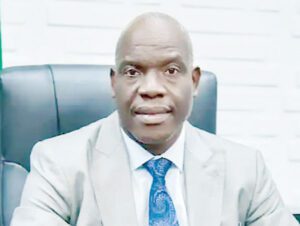
ANED raises concerns over FG’s metering initiative
The Association of Nigerian Electricity Distributors (ANED) has expressed concerns over the slow pace of metering initiative by Federal government.
The association said that it has retained the controversial use of bill estimation method.
Although, ANED justified the billing of end-users by estimation as a normal process worldwide, it however blamed inability of the system to meter consumers.
ANED’s Executive Director for Research and Advocacy, Sunday Oduntan, stated that for billing to be fair, consumers are expected to be provided with prepaid meters.
Oduntan said however that effort to meter consumers has been problematic in the country adding that at the end of the third quarter of last year, Nigerian Electricity Regulatory Commission (NERC) said 62.67 per cent of electricity consumers in the country were still on estimated billing, as the commission’s Key Operational and Financial Data of the Nigerian Electricity Supply Industry (NESI) for January 2019 to September 2021 showed that of the 12,784,685 registered energy customers as at September 2021, only 4, 772,906 (37.33 per cent) had been metered.
On estimation, he said the practice is scientific and follows necessary methodology, stressing that the masses must drop ‘misinformation’ that the companies were billing consumers unnecessarily to meet revenue targets.
ANED said DisCos were not forcing their marketers to ‘extort’ customers and give them bills that do not reflect their electricity consumption in an effort to improve revenue.
Oduntan, said the companies were only concerned with market ‘receivables,’ which is the money owed to the DisCo for a service already rendered.
“This is money earned by the DisCo based on the energy consumed. If this is what is being wrongly and ignorantly defined as cooked up figures, then it is our responsibility to help save the public from those spreading this misinformation.
“Any organisation that is performance-driven ties staff activities and its operations as a whole to targets. It is part of the model of any good organisation. DisCos set commercial, operations, technical and even customer service targets for their staff.
“The commercial targets in our case are specific and based on what has been consumed.
“Setting targets does not mean conjuring figures to meet those targets. We go out to collect what is owed. That is legitimate,” Oduntan said.
According to him, distribution transformers are metered to show the value of electricity that passed through transformers to customers in an area. He noted that consumers must not equate that with a random target set with no data justifying expectations.
Oduntan said the amount, when matched with collection from users of electricity connected to a transformer against how much has been paid, would provide details where gap exists.
“We are simply saying people should pay us what they owe and our people are given the data on what is being owed and by who. DisCos do not arbitrarily make up billing figures. Where the customer or group of customers does not have pre-paid metres, there is an approved methodology for the computation of estimated bills, designed by NERC, which the DisCos follow. It ensures that the amount of energy consumed through a particular distribution transformer is paid for by those who utilise the said transformer,” he said.
“Estimated billing is scientific and Nigeria is not the only country that practises it. In addition, customers are also allowed to contest their billing. We don’t just bill people to get money.
“NERC’s Methodology for Estimated Billing Regulations 2012 (Estimated Billing Methodology Regulation) was specifically introduced in 2012 to ensure energy consumed is paid for and also to ensure DisCos do not issue to electricity customers arbitrary electricity bills, which did not reflect their actual power consumption. This has been further regulated through the Capping of Estimated Billing Order 2020,” Oduntan said.
He challenged customers to promptly report electricity workers demanding bribe, noting that Nigerians must help the market fish out “bad eggs in our system.”
He added: “If you see something, say something. Like every other business, the possibility of the presence of bad eggs that will want to exploit hapless customers will always be there. The information you provide to us will help in a very significant measure to curb the activities of such elements.”



